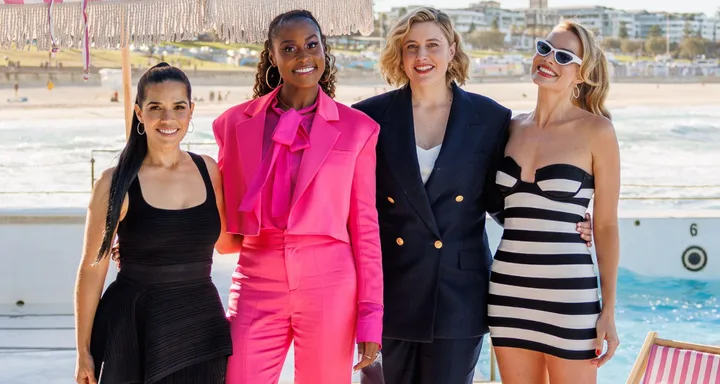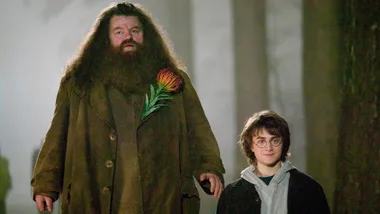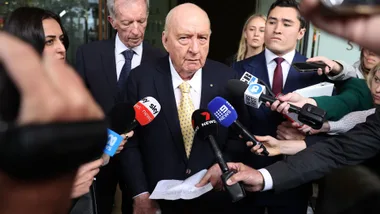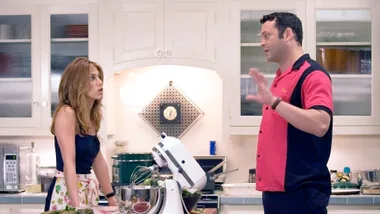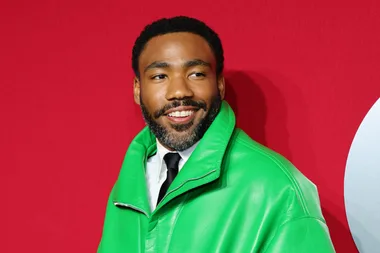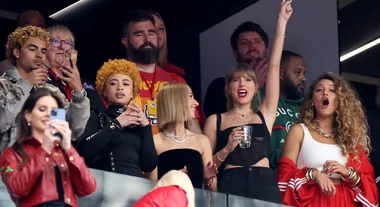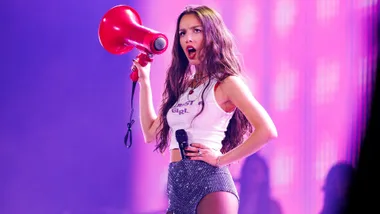There’s no denying that the world is in Barbie mania ahead of the release of Greta Gerwig’s Barbie movie on the 20th of July. We had the opportunity to sit down with Greta, producer and actor Margot Robbie, actor Issa Rae and actor America Ferrera ahead of the release, to talk about the hype behind the movie but also some of the controversy.
It’s no secret that Barbie has become a blueprint for the unattainable standard of beauty women are held to, and one with detrimental effects. Around 1 million Australians suffer with eating disorders, accounting for around 4 per cent of the population, and there is also the fact that traditional Barbies were always thin, but curvy ‘where it counts’, predominantly white and blonde.
Of course, Mattel (the toymaker behind Barbie) has diversified what Barbie means since then, launching Barbies from all walks of life, professions, ethnicities and abilities, but for many it all came a little too late.
This was something Gerwig didn’t want to shy away from, acknowledging the past would be key for the movie to make any real mark at all.
“I would say what we did is, if there were rules, I think we broke all of them. That was part of the fun of it in a way. Tell me what your sacred things are and I will do something naughty with it,” she says, a glint in her eye.
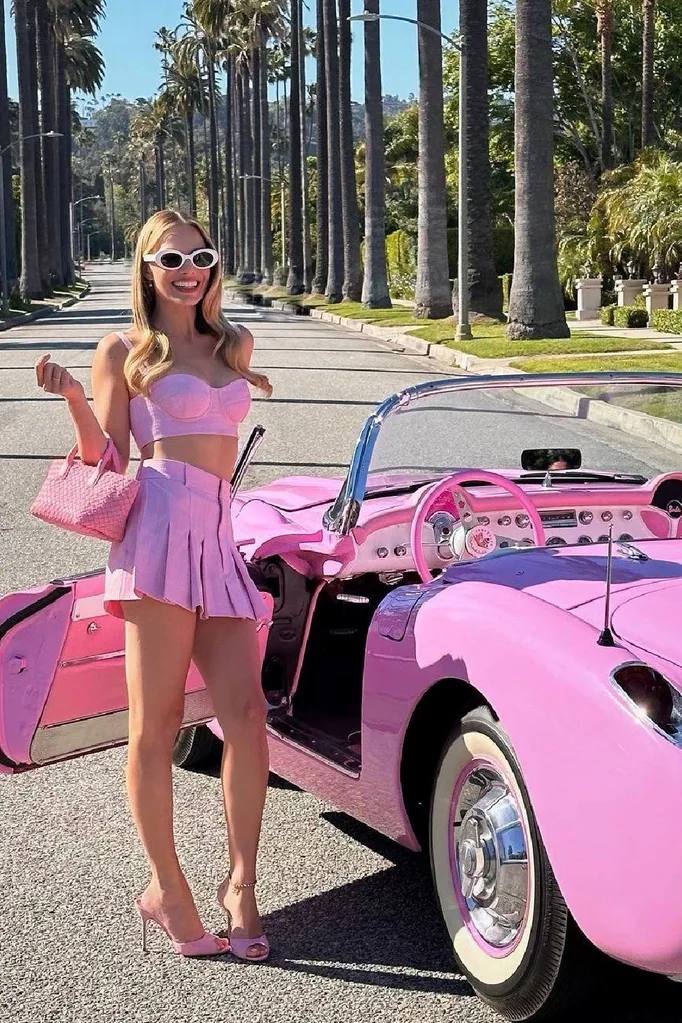
Gerwig added that having Robbie and her production company LuckyChap on board to protect her writing process from being twisted at the hands of PR managers was key in being able to tell the story they wanted to tell.
The mutual celebration and subversion of the Barbie world was a backbone in the creation of this film, with Margot adding that they literally call her character ‘Stereotypical Barbie’, a nuanced jab at the image that comes to mind when you think of the brand.
The approach won over star America Ferrera when she read the script, despite never really relating to the Barbie dynasty as a young girl.
“I didn’t have a connection to Barbie and as a child. I wasn’t conscious of exactly why, it probably had a lot to do with not being seen and represented in that world,” she explains.
“I remember when I finished reading the script, I was so thrilled as a woman in the world, that this movie was getting made: that this version of this movie was getting made by these women – by Greta and Margot.”
While bringing diversity into a world that has so largely shut its doors to those who don’t fit in a cookie cutter ‘plastic’ mould could be seen as tokenistic, for Ferrera, the movie represents a shift in popular culture itself, not a band aid solution.
“And as a mother I was so thrilled that this movie was getting made because it is a different world for young women and boys and non-binary people growing up in this day and age to be seen and feel that they can look up into the things that we value in our culture and that they’re represented in it,” she says.
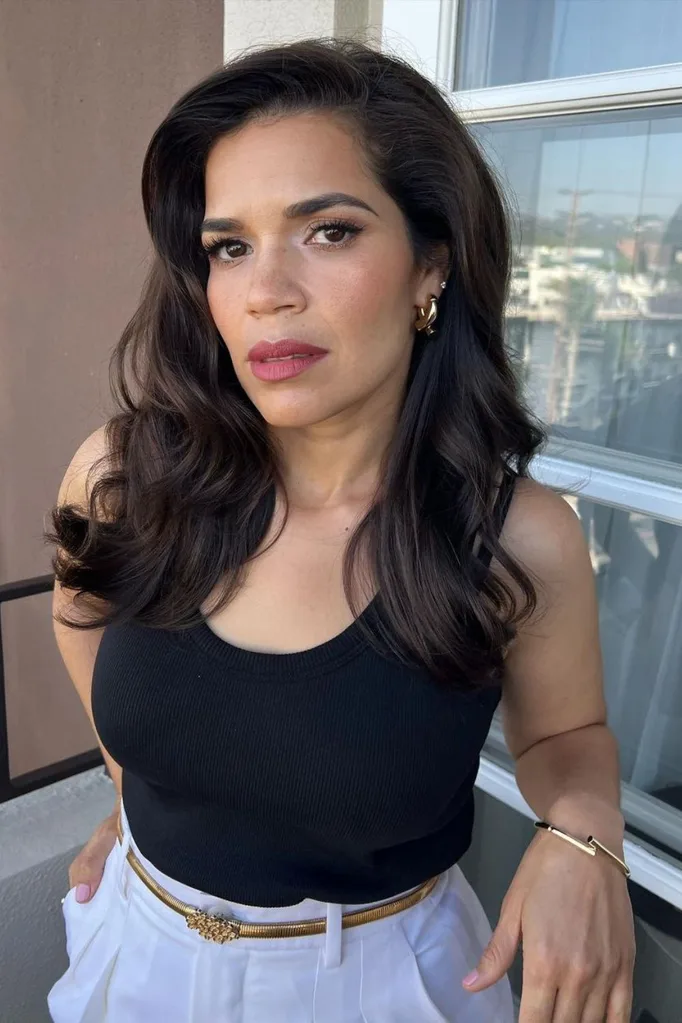
“It means everything to us. And as little girl America , finishing that script and trying to wrap my mind around the fact that somebody had expanded the Barbie world where there was space for somebody like me and not because I had transformed into some unattainable expectation, but because our culture has shifted to make space for people like us, is so beyond moving and inspiring and so exciting to be a part of. It feels important, there I said it. This movie feels important to me on so many levels.”
For Issa Rae, who plays a presidential Barbie in the movie, her concerns around a slap-dash approach to diversity in the film were immediately quelled when she got on set.
“My biggest concern was – no one wants to feel tokenised and who else was a part of it? Walking onto the set all my fears were quelled because there was just so much diversity and diversity of all types,” she said.
Even for Margot, playing Stereotypical Barbie, she really paid attention to the way her stereotypical blonde came across, and ditzy did not come into the equation.
“I definitely didn’t want to portray Barbie as being vapid in anyway,” she says. “The thing about how our story is constructed is that Barbie can be anything – Barbie can be president, Barbie can be a Nobel Prize winner, you see all this stuff at the beginning of the movie that sets up how intelligent Barbie is.”
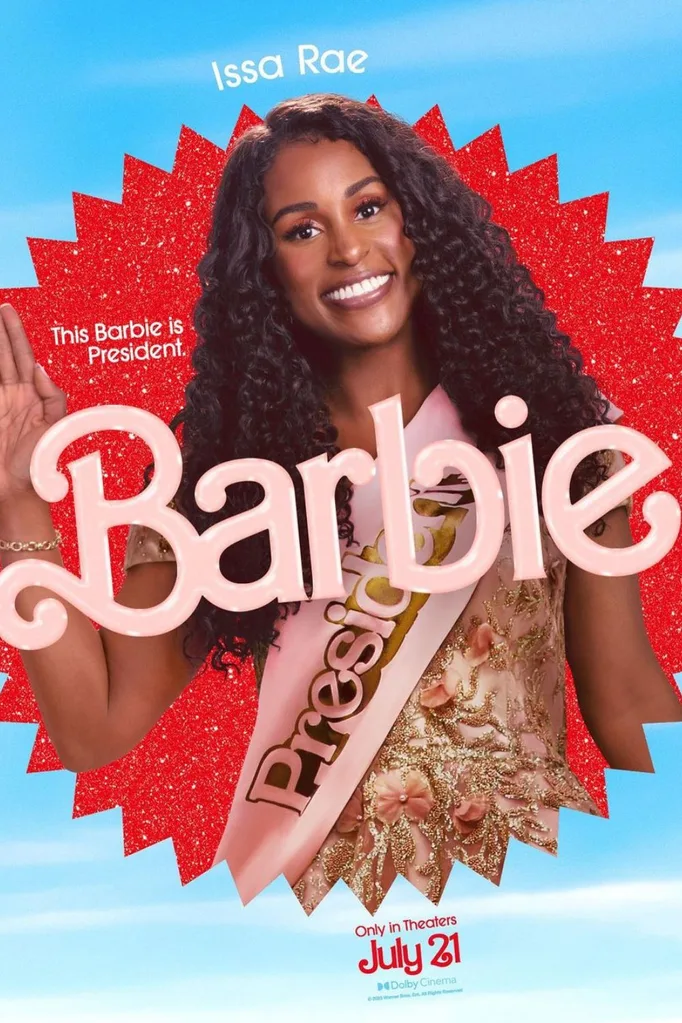
However, at the same time, when Barbie enters the real world, it was important to show her being exposed to new concepts and new ways of life.
“It was a fine line between playing naivety without it coming across as unintelligent. I didn’t want her to seem ditzy because, a) that’s not interesting to play and b) that’s not interesting to watch either,” Robbie explains.
Gerwig was intensely aware of the controversy and competing opinions about what Barbie means to society while making the film.
“People have a lot of feelings about Barbie, they always have, and it felt like we had to make something that addressed the wide range of feelings,” she said. “It’s a brand known all around the world. Like Coca Cola is known all around the world, but I don’t think people have as many feelings around Coca Cola. I could be wrong, but I feel like Barbie has more emotion.”
She’s not wrong: the Barbie fandom is enormous, with die-hard fans who wield an intricate knowledge of every outfit and every offering in the Barbie universe.
The movie also calls out the original ingenuity of the Barbie toy and what it meant for young girls at the time. You see, previous to Barbie’s inception in 1959, all little girls had to play with was baby dolls, clearly teaching women that their place was in the home, as carers. A fashion-forward, work-driven Barbie doll was ahead of its time.

It was interesting for Ferrera to acquaint herself with the many iterations of Barbie in their original contexts during her research.
“It’s really phenomenal to get a sense of how long the Barbie legacy has been and how there have been times in the legacy when she was a revolution and other times when she was way behind the times and she needed to catch up,” she says.
“The mere fact that she was the first doll a girl could play with that wasn’t a baby doll, is something that I didn’t really ever know. There was an appreciation right from the start of how long her legacy is and how varied her place in our culture has been.”
Whether you love Barbie or hate Barbie, Margot Robbie is sure this is still the movie for you this summer.
“You should watch this movie because it’s a fun movie. And it is SO much fun,” she says. “And it is so well crafted…everyone is operating at the highest level. It is a top-quality film; it also happens to be extremely fun. If you love Barbie, you’re going to love it, if you hate Barbie, you’re going to love it, but if you just love a good movie you’re going to love it.”
And that is the crux of the matter too, is that the success of female driven movies builds on the likelihood of another female driven movie being made. Greta and Margot both reference Wonder Woman when it comes to why this movie even got approved.
Margot says, “I want the movie to do well because we all worked so hard, and we want it to do well. But, I also think it is important when a movie like this does so well. If Wonder Woman hadn’t done what Wonder Woman had done, I don’t know if people would have given us the budget we got to do this. And if this does well, then the next person who wants to make a female film…it’s so important.”
Barbie Movie is out 20 July 2023 in cinemas across Australia.
